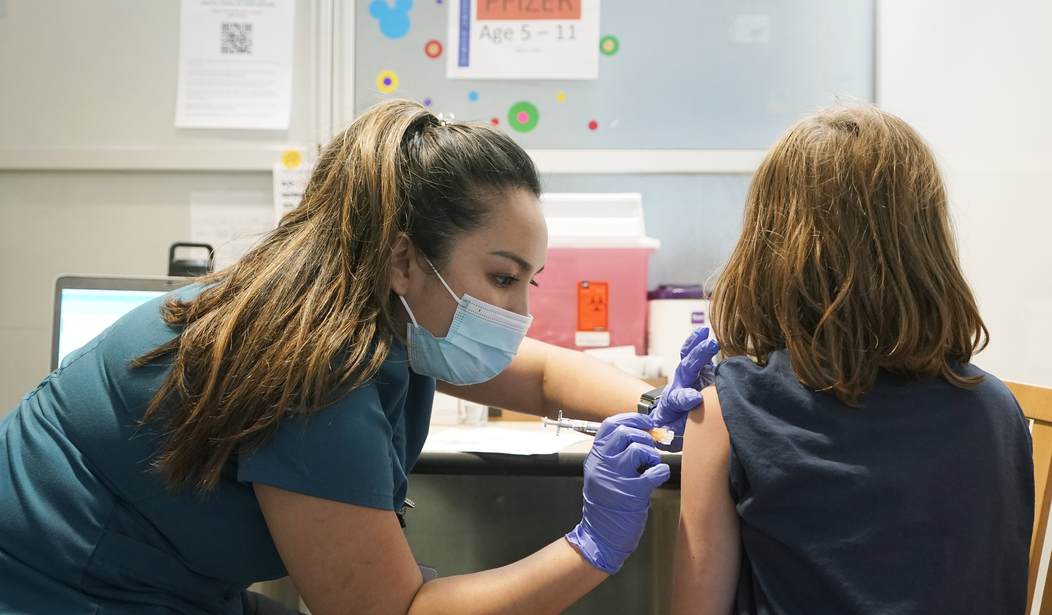PJ Media readers have long been aware of the increased risk of myocarditis from the mRNA COVID vaccines from Pfizer and Moderna. Studies have made that link very clear.
But it turns out that Pfizer knew it too.
According to documents revealed by Project Veritas, Pfizer knew about the potential side effect of increased risk of myocarditis.
BREAKING: Confidential @Pfizer Documents Reveal Pharmaceutical Giant Had ‘Evidence’ Suggesting ‘Increased Risk of Myocarditis’ Following COVID-19 Vaccinations in Early 2022
"“There is evidence that suggests patients who receive a COVID-19 vaccine are at an increased risk of… https://t.co/7rrh33DPXx pic.twitter.com/ZtJMocJiJP
— Project Veritas (@Project_Veritas) March 16, 2023
The Pfizer documents acknowledge that the pharmaceutical company was aware that “There is evidence that suggests patients who receive a COVID-19 vaccine are at an increased risk of myocarditis.”
“Onset was typically within several days after mRNA COVID-19 vaccination (from Pfizer or Moderna), and cases have occurred more often after the second dose than the first dose,” the documents say. “The pattern of cases conform, as per the label, to a pattern of myocarditis cases occurring in [the] majority of young males below 29 years of age within the first two weeks postvaccination…”
“The reasons for male predominance in myocarditis and pericarditis incidence post COVID-19 vaccination remain unknown,” the documents reveal.
The CDC acknowledges that myocarditis can occur after mRNA vaccination but insists it is rare and recommends young males get it. But for some time, the link between myocarditis and the mRNA vaccines has been constantly disputed, with health officials and some studies insisting that the risk of myocarditis from COVID infection is higher than from receiving an mRNA vaccination.
However, there are studies that have shown that the Moderna and Pfizer vaccines are more likely to cause myocarditis in young men than natural infection from COVID, and that there’s anywhere from a 1-in-5,000 to a 1-in-6,000 chance of myocarditis in young men who receive a second dose of an mRNA vaccine.
In October, Florida Surgeon General Dr. Joseph A. Ladapo reported that the Florida Department of Health conducted an analysis of the mRNA vaccines, which found “an 84% increase in the relative incidence of cardiac-related death among males 18-39 years old within 28 days following mRNA vaccination.”
The Biden administration has long favored Pfizer’s and Moderna’s mRNA vaccines. In December of 2021, an advisory panel for the Centers for Disease Control and Prevention (CDC) voted to recommend the Pfizer or Moderna COVID-19 vaccines over the Johnson & Johnson vaccine, citing the risk of severe blood clots. However, for young men, the risk of severe blood clots from the Johnson & Johnson vaccine was statistically much, much smaller than the risk of myocarditis from the mRNA vaccines.
In fact, according to Doran Fink, M.D., deputy director of the clinical side of the FDA’s Division of Vaccines and Related Products Applications, “when you look at the balances of risk versus benefit, what we really start to see is risk of myocarditis being higher [than risk from COVID-19] in males under age 40.”
Despite the risks of myocarditis from the mRNA vaccines, the Biden administration has aggressively pushed universal vaccination—even for those who aren’t at a high risk from COVID, including children. In February, the CDC decided to recommend that all children six months to 15 months old have a two-dose or three-dose main series and booster and that all children 18 months and older get the same vaccinations. Last year, health officials in Sweden decided against recommending COVID vaccines for kids aged 5-12, arguing that the benefits don’t outweigh the risks.
Pfizer knew the risks, yet, they were willing accomplices in the Biden administration’s push for universal vaccinations and vaccine mandates.










